|
“‘This will be catastrophic’: Maine families face elder boom, worker shortage in preview of nation’s future,” from The Washington Post, could be a description of a dystopian movie: it’s not. This is the state of State of Maine, which is the harbinger of things to come for the rest of these 50 United States. We need to listen to this alarm.
We’re facing a demographic dilemma: not enough young people to fill all jobs, even those outside of elder care. We need them now! Where do we get them? We can’t hire them because they were never born! Thus, current workers remain on the job long after it’s safe or appropriate. Results include accumulated injuries to workers who keep doing injurious jobs. Even the field of healthcare can’t find enough workers or volunteers. The State of Maine has learned that there is no one available to fill home care jobs. There is no one to fill care facility jobs either. Professional fields have the same problem; many of the number of nurses and doctors are now older and there are not enough of them it is and there’s no one to replace them. Medicaid pays far less than other employers, drawing the few workers away from elder care. However, simply raising wages won’t help if there are not enough people to hire! Maine is already experiencing the results, some facilities closed altogether. Others closed admissions for months due to too few staff. No vacancies in care facilities means families must place their loved ones wherever they can. A loved one far away means a l-o-n-g commute to visit. Younger, disabled people also get caught in this care-crunch. If no one is available, some adult children try to fill the gap. Those care gaps further pressure the few remaining working adult children. Keep this number in mind: *By 2030, 1 in 5 Americans will be over 60. *The number of seniors will DOUBLE between 2015 and 2050. *The senior population over 85 will TRIPLE in that same period. **We will need 7.8 MILLION new people to fill these jobs. Since we didn’t give birth to them; where do we get them? This isn’t as riveting as a news story as a fire, or a shooting, that’s the problem. The numbers of affected families are there, but they aren’t collected (aggregated). This problem is spread everywhere. We’re in a presidential campaign yet no candidate is talking about this national problem. Why? This demographic dilemma is happening one family at a time: Your family is next.
0 Comments
As we approach the holidays, we consider visiting elderly relatives or arranging for them to visit us. While I cannot offer a guarantee of a pleasant visit, here are a few things to keep in mind to avoid some of the pitfalls
HAPPY HOLIDAYS! When families gathered on Thanksgiving day, some realized that their senior was not the same as last year. Families often respond by doing internet research. The internet is a good first step. However, some sites make outlandish claims. I saw one that offered a treatment that “cured Alzheimer’s”. There is no cure and some of these sites can offer dangerous suggestions.
Here are a few reputable sites that offer reliable information: Alzheimer's Association. This site also has a page devoted to explaining the different types of dementia. It also lists other physical conditions or environmental conditions that can look like dementia. American Society on Aging. It can feel encyclopedic in size. The society has done decades of research and offers reliable information. It’s a good second step. AARP offers many programs and information for families as well as seniors. Each state has a chapter with offices in each area. Look up your state to find help in your area. And Senior Sidekicks offers a course; Preparing to Parent Your Parent, to prepare families for the practical issues they will face as they become caregivers. Contact us about teaching this course in your church or at your job. Call (217) 787-5866 or email us for more information. Imagine you’re sitting quietly in a meeting or religious services; suddenly your heart starts pounding. You feel like your blood is coursing through the veins in your arms and legs. It’s bewildering and scary: Why?! There is nothing about this setting that calls for such a reaction. Yet, you have this reaction. It is important that caregivers understand what leads to this reaction and what they can do about it.
It’s a “fight or flight response gone wrong. It developed when we had to run away from Saber Tooth Tigers. Our ancestors were successful, that’s why we’re here. Those ancestors passed down to us their methods of coping with their world. Our modern world doesn’t have the same kinds of stressors, especially for caregivers. Our stressors are less clearly defined And they last longer. Our stressors change shape; one minute we’re dealing with the house-the spouse-the kids-and-the job. Then there’s a crisis and we’re caregivers for Mom! From that point forward, our caregiving increases but with no way to know when the need will become greater or how long caregiving will last. Our bodies respond as our ancestors’ once did; we produce Cortisol to rise to this crisis. The process goes like this: Stress causes the Hypothalamus to secrete. That triggers the Pituitary Gland to secrete. The Adrenal gland secretes Cortisol. This process has several names: HPA Axis, HPA Cascade or Syndrome X, or AKA Insulin Resistive Syndrome. (Wouldn’t it be helpful if we could all agree on one name?) It’s not the crisis that’s the problem. It’s the crisis that doesn’t end that creates bad effects on caregivers. The effects show up in different ways. Cortisol encourages promotes fat deposits in the outer layer of the body, especially the waist. Some caregivers gain weight. We can measure this effect by doing a BMI (Body Mass Index). Other caregivers have different conditions; heart disease, Type-2 Diabetes and Stroke. We can measure Cholesterol levels through a C-Reactive Protein lab test. We can also do a cheek swab to check Cortisol level. However, how many doctors don’t even ask patients if they are caregivers. The tests are there but they are not used to evaluate identified caregivers at this time on a general basis. You need to ask for them. When our bodies rise to meet a crisis: they must also let down. Even Saber Tooth Tigers would give chase and then give up. The caregiver’s duties do not end the same way. In fact, they do not “end” unless we place some “ending points” into the caregiver’s life. That is the role of self care, to provide end points such as respite and small moments. That’s why it’s necessary to spread the caregiving load so it doesn’t fall on one person. That is why we need to enlist family to give caregivers this kind of support. Otherwise, the caregiver can be sitting quietly in religious services and the Cortisol response “alarms” for no exterior reason. We need to advocate for caregivers to be recognized in the medical arena. Learn more by taking our course; Preparing to Parent Your Parent. When someone advises you to, “take care of yourself”; that doesn’t explain how. Elder caregiving is so new that some methods are still under development. However, we know some things that work and some to avoid. Self care does not mean a day at the spa. For many caregivers such a day would be out of reach financially or out of time to devote to a spa. Therefore, plan to care for yourself in moments, not hours. Think about your life like your heart; it beats all the time. Actually your heart takes a tiny rest between each beat that allows it keep going. When you care for yourself in moments, you pause and continue.
Try these ideas. Put up a sign saying, I NEED A MOMENT, to remind yourself to pause. Put up other signs family can see to remind them that you might need a moment before you can respond to their requests. Is the person in need bleeding or on fire? If the answer is no, then it’s OK for you to take a moment. It’s OK to train your family to allow you to do so. It’s OK for you to ignore repeated pleas for your attention (for a moment). Training takes time but you’re worth it. What do you do in that moment? Be sure you are safe. If you’re up on a ladder, get down first. Focus on something blank, like a wall or the ceiling. Breathe, deeply, through your nose, hold and count to 3 or 4. Let your breath out through your mouth but slowly; 1-2-3-4. Now, if you can afford the time, try looking at something peaceful; out a window, at a picture, or at some memento that is meaningful to you. Breathe again the same way. Many caregivers respond with; “I don’t have time to …” You’re right, time is at a premium. Most caregivers find themselves in that role at the same point they also have the house-the spouse-the kids-the job-the pets and MOM! You have a lot on your plate. Sometimes caregivers believe they can wait until they have time. By waiting until later, the damage from lack of self care will have done its worst. Undoing damage is much harder. The best intervention is prevention. Prevention comes in bits of time you claim now. Suppose you actually have a whole hour to yourself. It’s a gift! Ask yourself, “What refreshes me?” Notice I didn’t say what can I eat nor where can I sit down? Some caregivers eat to cope with stress. We need nourishment but not that way. Rhythmic movement, like walking, can help us feel less worn and is surprisingly refreshing. If you can’t go far; walk around the house or around the block. If you live in an apartment building, walk in the hall. “Go get the mail”, that errand will buy you a few minutes. Try to set a self care routine just as you have set other routines with child care or at work. Routines help us get things done without doing us in. Some things to avoid include sugar and alcohol. The stress hormone, Cortisol, takes sugar and converts it into weight around your middle. Sugar may not be sweet; baked goods convert to sugar. As part of a balanced meal they’re fine; as a snack, not so much. Large amounts of food can have a numbing effect; like a Thanksgiving dinner. When we feel numb, our minds seem to turn off. When you see you have time and turn to the refrigerator; ask yourself why are you eating? In a similar way, alcohol can create a numb feeling. We believe we’re relaxed but a caregiver’s immune system is more vulnerable and needs extra protection that alcohol doesn’t provide. Alcohol is also a depressant, which won’t help caregivers. So how does one “turn off” the constant “list-making” that goes on in the caregiver’s mind? Try other things. Try relaxing teas like Passion Flower, Elder Flower or Chamomile. Try playing some relaxing music that’s meaningful to you. Try a rhythmic movement “dance” (try it with your partner). Try a hot shower or better, a hot bath. Try placing essential oil of lavender in your bedroom. All of these set the stage for relaxation. Develop your own mediation or routine to think about at bed time instead of a to-do list. There are also tapes available. So self care comes in moments you claim as your own. To learn more ways to cope, take our course: Preparing to Parent Your Parent. This is the first of a three part series about the often-heard advice to caregivers to “take care of yourself”.
What does that mean? Since elder caregiving is relatively new, many caregivers aren’t sure. Let’s begin with the word self care; it means considering yourself as part of the caregiving plan. Your health and mental well-being are a vital part of providing care. Think of your contribution in other ways: wouldn’t you take care of equipment used to care for the elder? Wouldn’t you make sure to have enough supplies on hand? Wouldn’t it be hard to provide care without equipment and supplies? Think how much harder would it be if you weren’t able to provide care? You’re the most important part. Caregivers may believe that they should put their needs aside: no! That’s like pouring yourself out without putting anything back. Such a belief leads to caregiver burnout. Some caregivers burnout emotionally, others develop health problems, and still others find their families are disrupted. All are symptoms of burnout. Many symptoms go unrecognized. Now that you are aware, you can be alert to the influence of caregiving on your life. Some caregivers believe that the entire task is theirs alone; not necessarily. Part of self care is letting go of that assumption. We ask for help in other parts of our lives; accountants, plumbers, physical therapists, or lawn crews. No one believes these helpers take away our responsibility; they contribute to our successful process. What do you do in a typical day? How many of those tasks require direct interaction with the elder? Who else could do them? For example; laundry must be done. Why does it have to be you? Does it matter to the elder who does it? Letting others into the care process is part of letting go. Letting others in is part of self care. Self care can mean admitting to yourself that you feel certain things in response to caregiving. Some of those feelings are not too “nice”. Frustration, anger, despair and sadness are all parts of the caregiving journey. If a friend came to you admitting to these feelings would you send them away? Perhaps you would listen to them and sit with them. Sadly, I meet caregivers who whisper their negative feelings if they say anything at all! Part of self care is becoming your own “best friend”. You and that self need to talk to each other. Admitting to those not-nice feelings doesn’t make bad things happen. In fact, it allows you to let out some of the pressure behind those emotions. Self care begins with recognition of one’s value, affirmation and support for the caregiver. To learn more, take our course: Preparing to Parent Your Parent or call (217) 787-5866 Caregivers experience a jolt when confronted by their bosses about changes in their job performance. For some caregivers, these issues are the first sign that something has to change: now! Perhaps they didn’t realize that they were regularly tardy or missed important meetings. Did they know that they also missed important details in doing the job? Your boss noticed.
Most bosses don’t know what to do to help the caregiver with those issues. They just want employees back on track at work. Senior Sidekicks knows how to help. Take our course Preparing to Parent Your Parent to get back on the job track. Why take this course; because you must handle caregiving differently. In just 5 classes, you will learn ways to cope with and better manage caregiving. Senior Sidekicks brings this course to you; at your church or club. Senior Sidekicks teaches Preparing to Parent Your Parent at your convenience; evenings, weekends, lunch hours or days. One low price gives you 5 classes, a manual, and chance to bring your significant other for half price! This course shows your boss that you’re tackling this problem and wrestling it to the ground! Call Senior Sidekicks today at 217-787-5866. If you developed symptoms such as poor sleep, changed appetite, or more serious conditions, you’re not alone. According to The Executive Summary: Caregiving In The US 17%-35% of caregivers report poorer health.
Caregiving creeps. At first it’s the occasional errand. Then it’s dealing with financial matters. Other senior caregiving issues pile on; unpaid bills, medications ignored, and inaccurate reports about doctor appointments. You find that you’re monitoring medications, and accompanying your senior to the doctor. All the while, there are other parts of your life; your spouse and children, your job and home. Trying to do all these tasks as a caregiver while also keeping up with your own life becomes a monumental job! Something has to give. Where are you in all these duties? Many caregivers believe they can take care of themselves “when they have time”. Caution: caregiving you have no more time. Self care is vital to preserving yourself, your family, your job, and your sanity. Senior Sidekicks’ course; Preparing to Parent Your Parent explains why caregivers need to do self-care. Senior Sidekicks knows how busy you are. This course is convenient; delivered to your area: your church. We offer it at convenient times; evenings, weekends, or lunch hours. You receive 5 classes and a manual for one low price. If you bring your significant other, they pay half price. Call Senior Sidekicks today to learn more. 217-787-5866. We have seen how caregiving creeps until it fills one’s daily life and affects one’s job. What about the people in your immediate family? Do your children behave differently? Are they withdrawn or act out? Have you received school reports about problems? We expect sibling rivalry when a new baby comes home. What if the one who demands the parent’s attention is not a baby; it’s Grandma? That’s not what most caregivers anticipate. Yet, a distracted parent is still a distracted parent.
What about your spouse? The marriage vows cover sickness and health, richer or poorer. They don’t include vows to care for your parent and mine. Perhaps we should add new vows should since caregiving now involves 43.5 million people; according to Caregiver.org/Statistics and demographics. That number will continue to climb! Most couples haven’t considered caregiving the same way they considered where they would live or how many children to have. Yet, caregiving affects many households as well as individual caregivers. Isn’t it time to address caregiving together, just as couples do with other life decisions? Senior Sidekicks’ course, Preparing to Parent Your Parent, is designed to get spouses into working with each other. Those who enroll can bring the spouse at half price. Together, you will learn about handling various parts of caregiving and compile a manual for future reference. You can arrange the course for a location near you; like your church. Senior Sidekicks will deliver the course at times convenient for both of you; evenings, weekends, lunch hours, or days. Call us today at 217-787-5866. While standing in a checkout line, I struck up a conversation with an elder. He said his house was too big but wouldn’t move because he would need to downsize first. The elder said that he had decided not to clean out, instead, to leave it for his kids. Really! That’s an unwise choice for many reasons:
“I lost so much time from my family”. “It cost me my job (or promotion)”. “I had to stop my education and it was harder to go back”. “I felt so alone, like my parents had abandoned me to this task”. “I felt overwhelmed”. “I developed high blood pressure”. “My sibs and I fought about sharing the work, it’s still hurts”. So, what will be your legacy to your children? |
Author "A Senior Moment" is written by Ms. Sara Lieber, owner of Senior Sidekicks. Ms. Lieber has over 30 years of experience in senior care. Archives
March 2024
Categories
All
|



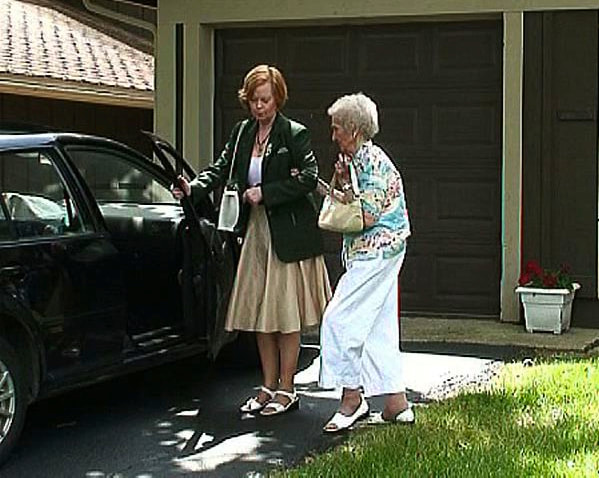
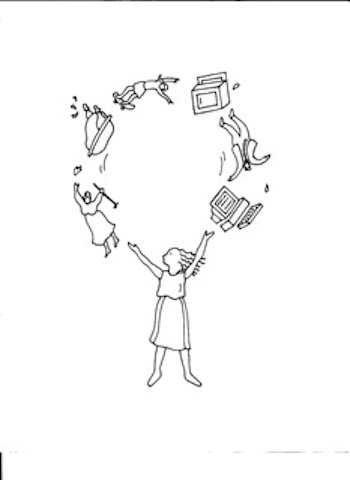
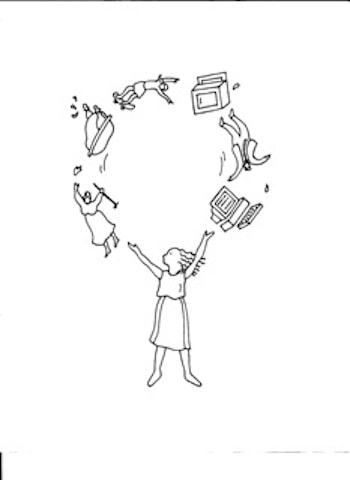
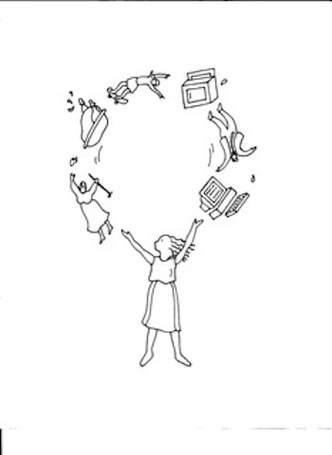
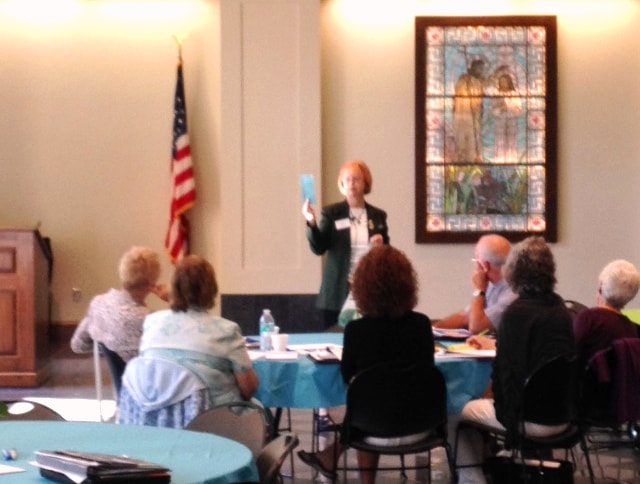
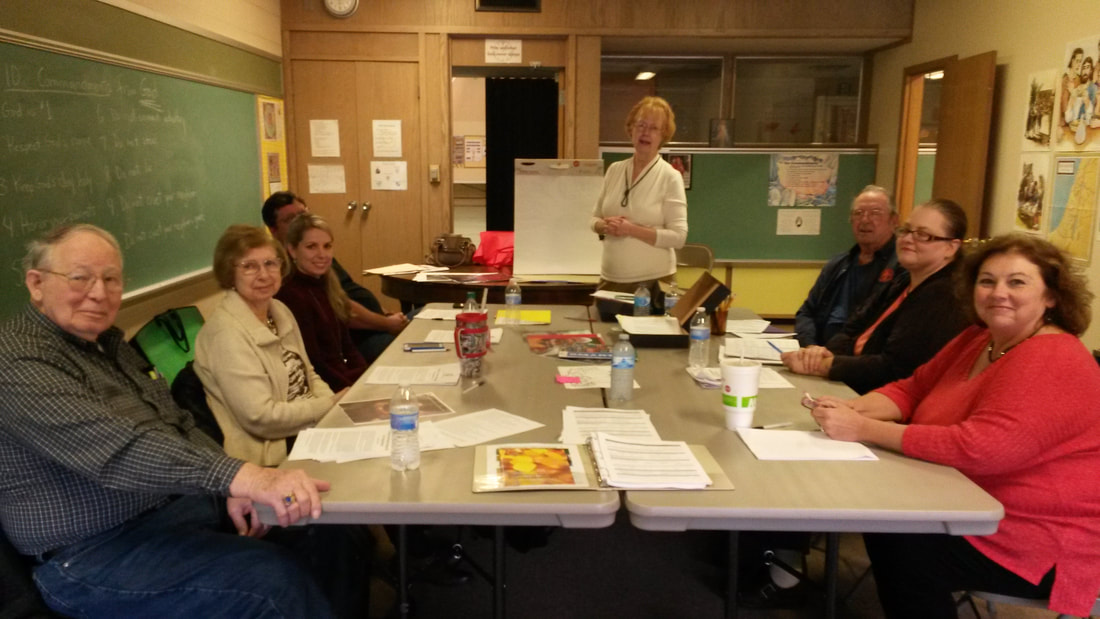
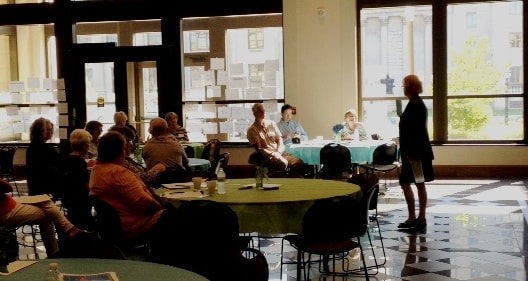
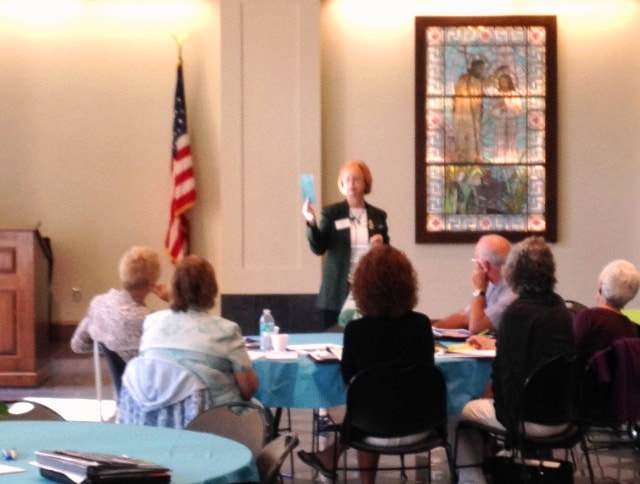
 RSS Feed
RSS Feed